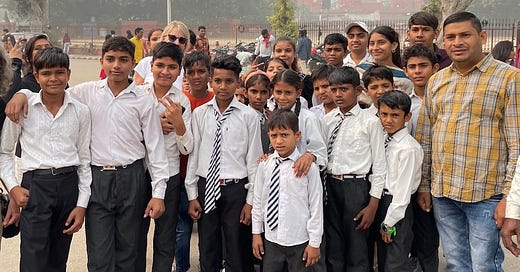Best 7 Parenting Insights From the Vibrant Tapestry of India.
Solving some of your most difficult parenting problems and challenges.
Welcome to the Sunday Series and the new subscribers who joined Parenting Toolbox in the past fortnight.
This series differs from the regular Parenting Toolbox newsletter articles in that it takes a different, sometimes deeper, look at the world of parenting.
In this issue, I reflect on the parenting lessons I learned from a month I recently spent in Ind…



